Abstract
The effects of ambient temperature (13.5 degrees C, 21 degrees C, 30 degrees C) and type of wound on healing of skin wounds were evaluated in common garter snakes (Thamnophis sirtalis). Linear unsutured incisions and circular excisional wounds were evaluated grossly and microscopically in three snakes held at each temperature at each of two, five and ten days after surgery. Linear sutured and unsutured incisions and circular and square excisional wounds were similarly evaluated three and six weeks after wound production in groups of six snakes held at each temperature. The rates of stabilization of wound margins, scab formation, migration and maturation of the regenerating epithelium, resolution of dermal inflammation, and fibroplasia varied directly with temperature. The inflammatory reaction to wounding was similar in character and intensity in snakes held at all three temperatures two days after surgery. Unsutured linear incisions, compared to sutured incisions, tended to have more rapid epithelial maturation and a less intense inflammatory response. Healing of square and circular excisional wounds was similar; contraction of round wounds was slightly more irregular and, at a few observations, dermal maturation was slower and inflammation more widespread. It was concluded that healing of skin wounds can be accelerated by holding reptiles at the upper end of their voluntary temperature range. Wounds, if possible, should be created along the axis of lines of skin tension. Suturing small incisional wounds may not be advantageous.
Full text
PDF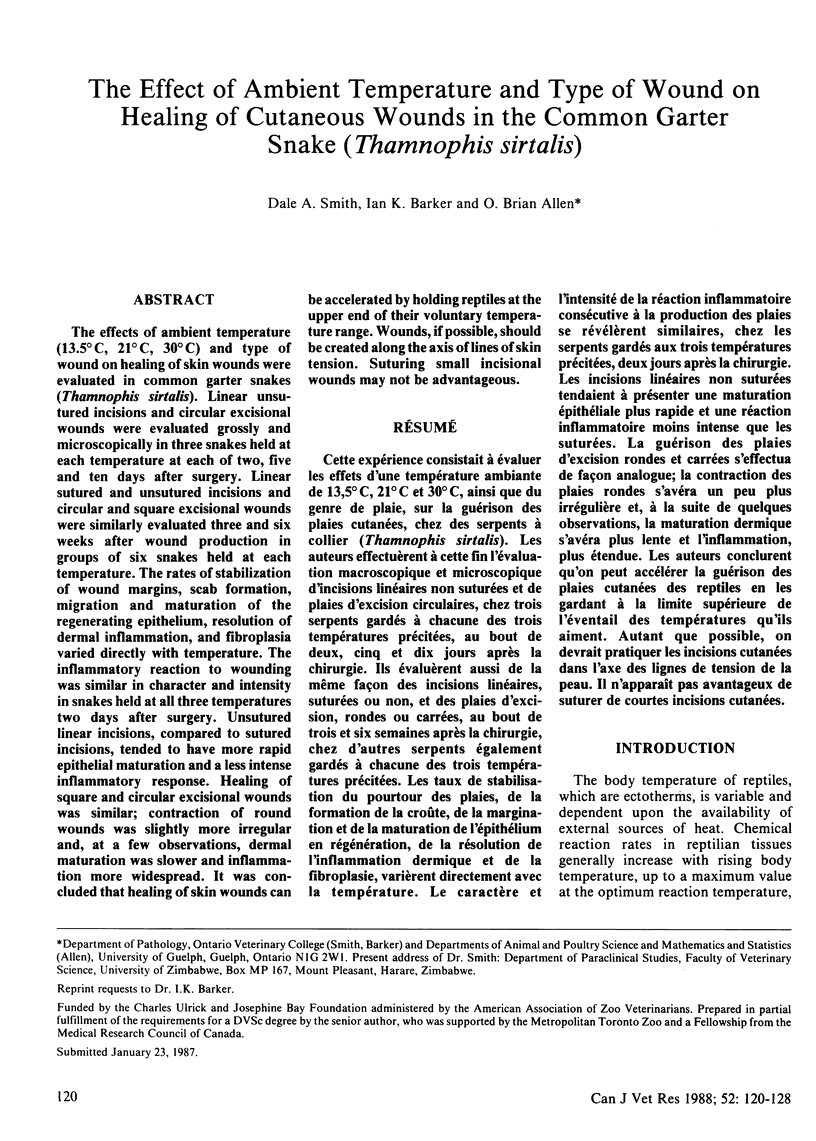
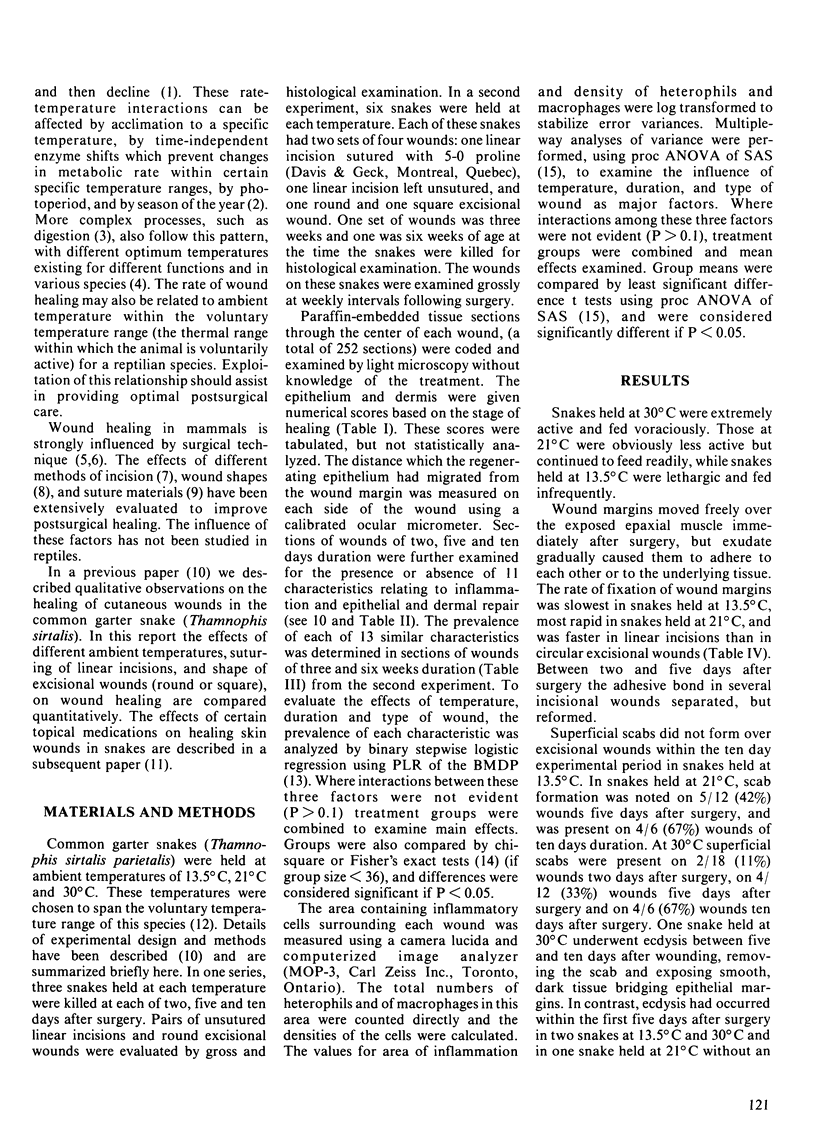
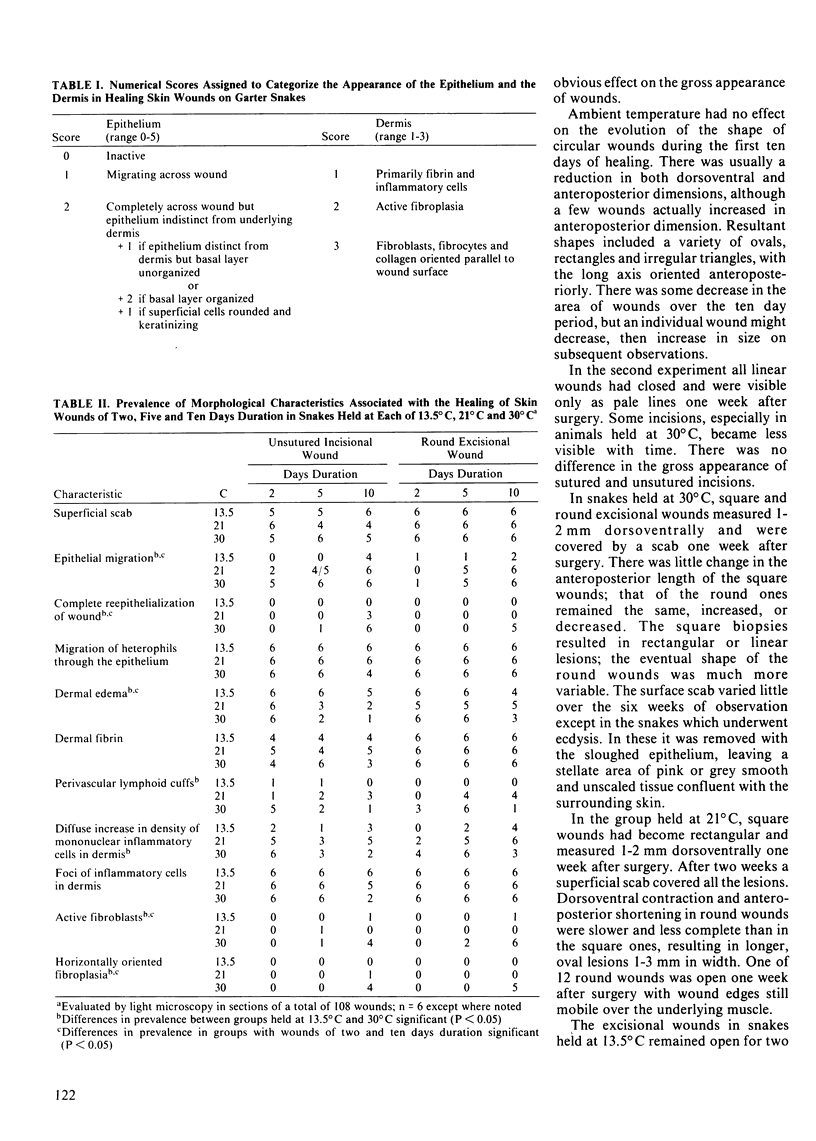
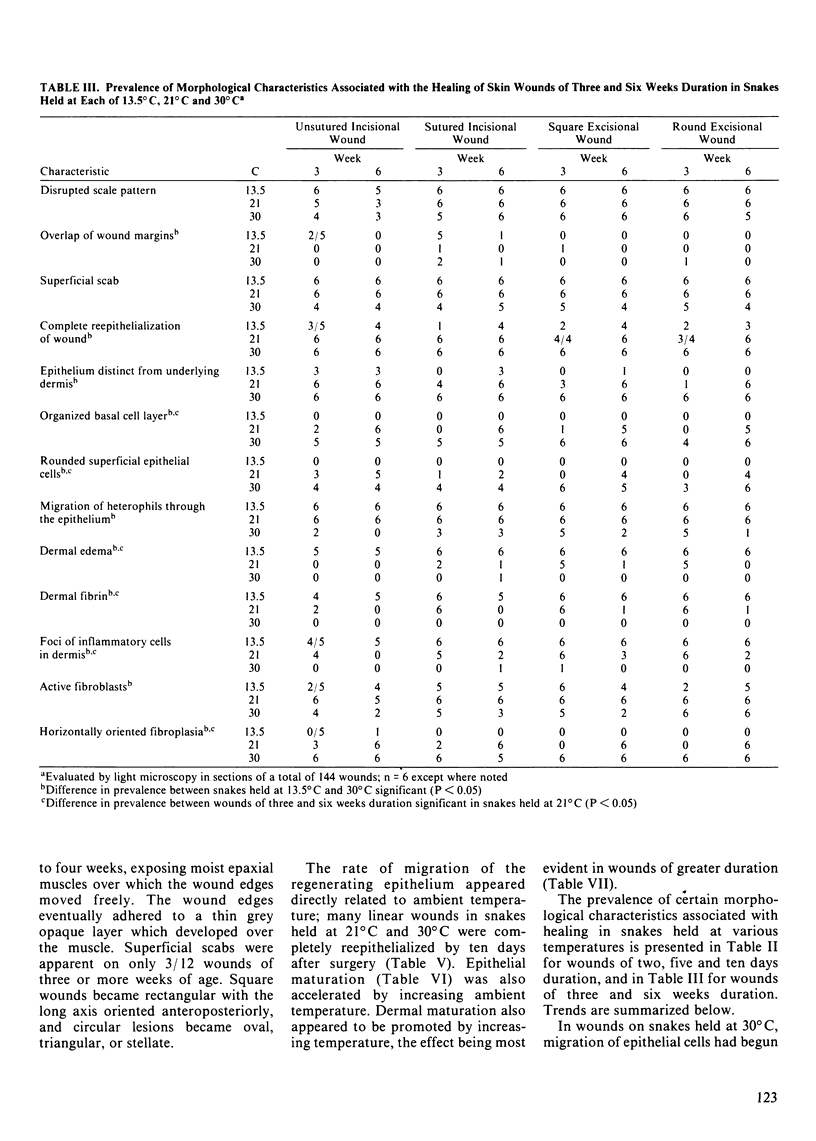
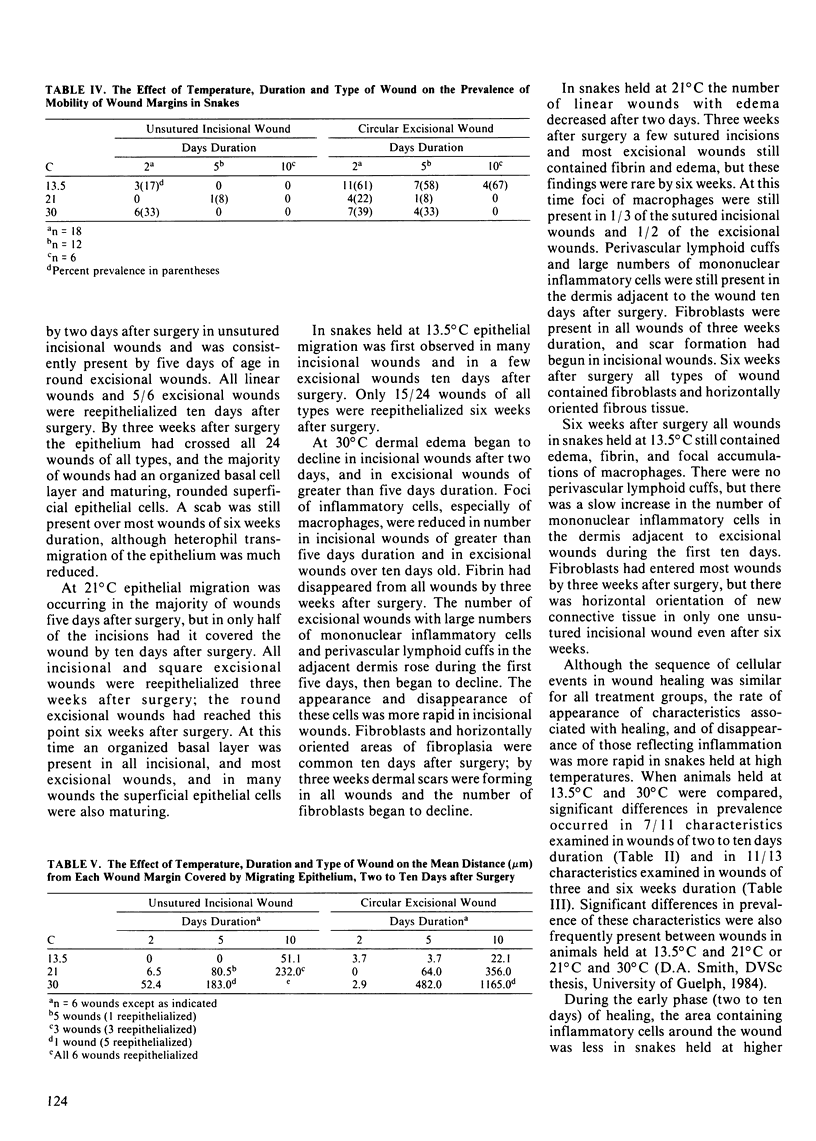
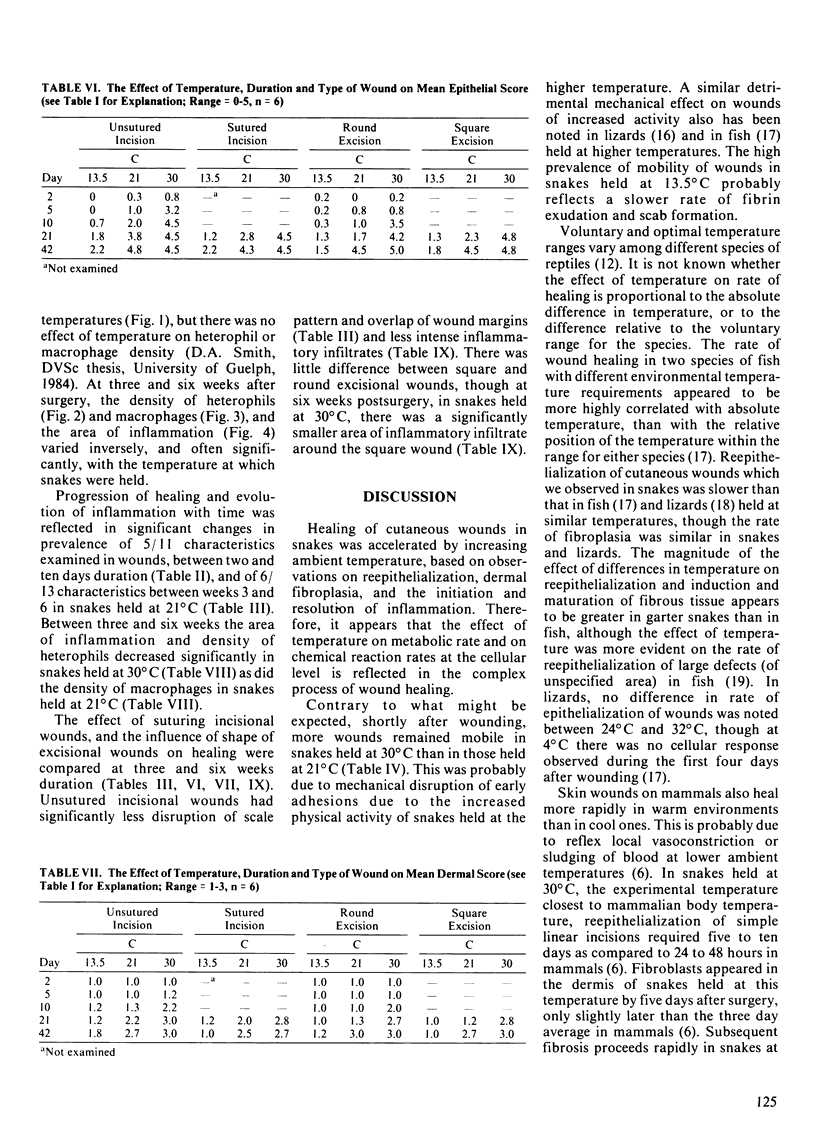
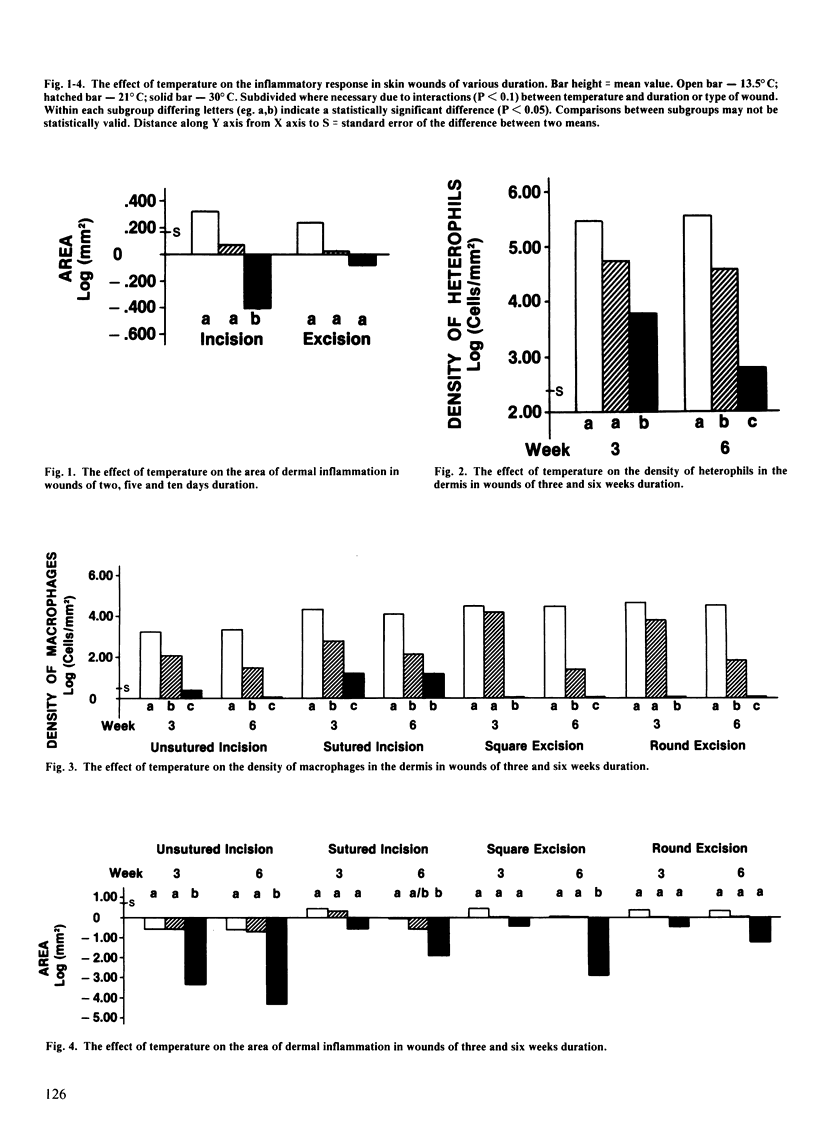
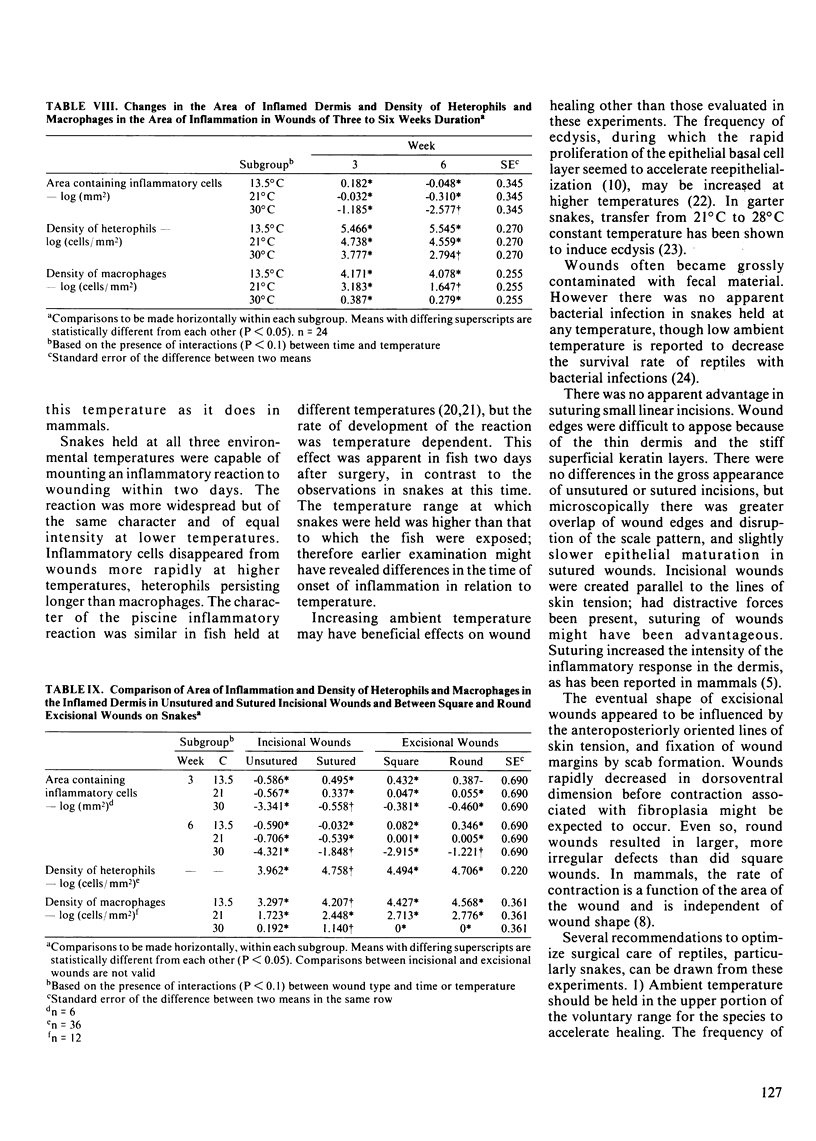
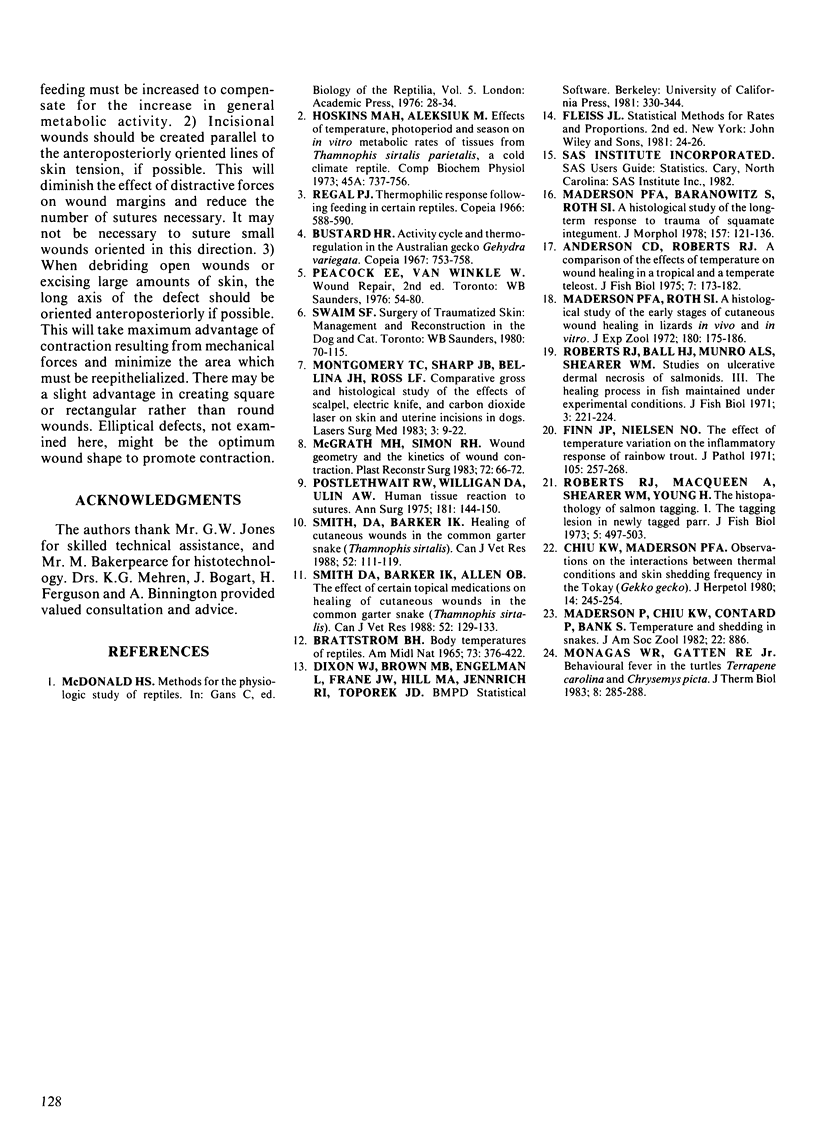
Selected References
These references are in PubMed. This may not be the complete list of references from this article.
- Finn J. P., Nielsen N. O. The effect of temperature variation on the inflammatory response of rainbow trout. J Pathol. 1971 Dec;105(4):257–268. doi: 10.1002/path.1711050404. [DOI] [PubMed] [Google Scholar]
- Hoskins M. A., Aleksiuk M. Effects of temperature, photoperiod and season on in vitro metabolic rates of tissues from Thamnophis sirtalis parietalis, a cold climate reptile. Comp Biochem Physiol A Comp Physiol. 1973 Jul 1;45(3):737–756. doi: 10.1016/0300-9629(73)90077-7. [DOI] [PubMed] [Google Scholar]
- Maderson P. F., Roth S. I. A histological study of the early stages of cutaneous wound healing in lizards in vivo and in vitro. J Exp Zool. 1972 May;180(2):175–185. doi: 10.1002/jez.1401800205. [DOI] [PubMed] [Google Scholar]
- McGrath M. H., Simon R. H. Wound geometry and the kinetics of wound contraction. Plast Reconstr Surg. 1983 Jul;72(1):66–73. doi: 10.1097/00006534-198307000-00015. [DOI] [PubMed] [Google Scholar]
- Montgomery T. C., Sharp J. B., Bellina J. H., Ross L. F. Comparative gross and histological study of the effects of scalpel, electric knife, and carbon dioxide laser on skin and uterine incisions in dogs. Lasers Surg Med. 1983;3(1):9–22. doi: 10.1002/lsm.1900030103. [DOI] [PubMed] [Google Scholar]
- Postlethwait R. W., Willigan D. A., Ulin A. W. Human tissue reaction to sutures. Ann Surg. 1975 Feb;181(2):144–150. doi: 10.1097/00000658-197502000-00003. [DOI] [PMC free article] [PubMed] [Google Scholar]
- Smith D. A., Barker I. K., Allen O. B. The effect of certain topical medications on healing of cutaneous wounds in the common garter snake (Thamnophis sirtalis). Can J Vet Res. 1988 Jan;52(1):129–133. [PMC free article] [PubMed] [Google Scholar]
- Smith D. A., Barker I. K. Healing of cutaneous wounds in the common garter snake (Thamnophis sirtalis). Can J Vet Res. 1988 Jan;52(1):111–119. [PMC free article] [PubMed] [Google Scholar]


